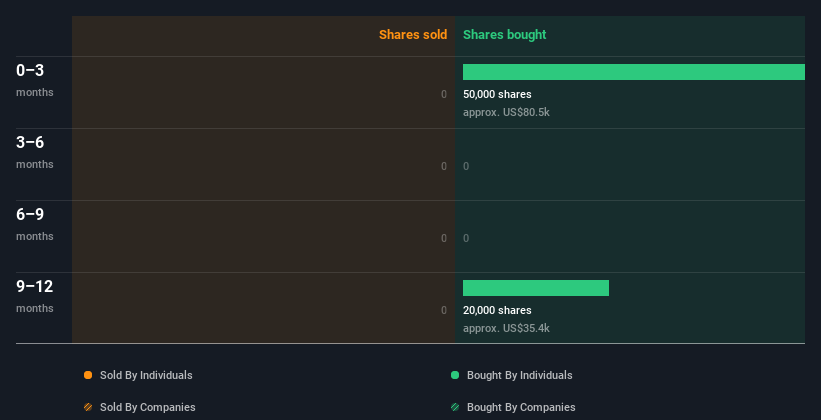Quantum-Si Gains 21%, Insider Trades Reap Benefit
Insiders who bought Quantum-Si incorporated (NASDAQ:QSI) stock in the last 12 months were richly rewarded last week. The company's market value increased by US$54m as a result of the stock's 21% gain over the same period. Put another way, the original US$115.9k acquisition is now worth US$156.1k.
While we would never suggest that investors should base their decisions solely on what the directors of a company have been doing, we do think it is perfectly logical to keep tabs on what insiders are doing.
See our latest analysis for Quantum-Si
The Last 12 Months Of Insider Transactions At Quantum-Si
In fact, the recent purchase by Jeffry Keyes was the biggest purchase of Quantum-Si shares made by an insider individual in the last twelve months, according to our records. We do like to see buying, but this purchase was made at well below the current price of US$2.23. While it does suggest insiders consider the stock undervalued at lower prices, this transaction doesn't tell us much about what they think of current prices.
Quantum-Si insiders may have bought shares in the last year, but they didn't sell any. You can see the insider transactions (by companies and individuals) over the last year depicted in the chart below. By clicking on the graph below, you can see the precise details of each insider transaction!
There are always plenty of stocks that insiders are buying. So if that suits your style you could check each stock one by one or you could take a look at this free list of companies. (Hint: insiders have been buying them).
Insiders At Quantum-Si Have Bought Stock Recently
Over the last quarter, Quantum-Si insiders have spent a meaningful amount on shares. CFO & Treasurer Jeffry Keyes spent US$81k on stock, and there wasn't any selling. That shows some optimism about the company's future.
Insider Ownership
Looking at the total insider shareholdings in a company can help to inform your view of whether they are well aligned with common shareholders. A high insider ownership often makes company leadership more mindful of shareholder interests. Insiders own 27% of Quantum-Si shares, worth about US$87m. We've certainly seen higher levels of insider ownership elsewhere, but these holdings are enough to suggest alignment between insiders and the other shareholders.
So What Do The Quantum-Si Insider Transactions Indicate?
It is good to see the recent insider purchase. And the longer term insider transactions also give us confidence. However, we note that the company didn't make a profit over the last twelve months, which makes us cautious. Insiders likely see value in Quantum-Si shares, given these transactions (along with notable insider ownership of the company). So these insider transactions can help us build a thesis about the stock, but it's also worthwhile knowing the risks facing this company. In terms of investment risks, we've identified 3 warning signs with Quantum-Si and understanding them should be part of your investment process.
Of course Quantum-Si may not be the best stock to buy. So you may wish to see this free collection of high quality companies.
For the purposes of this article, insiders are those individuals who report their transactions to the relevant regulatory body. We currently account for open market transactions and private dispositions of direct interests only, but not derivative transactions or indirect interests.
Have feedback on this article? Concerned about the content? Get in touch with us directly. Alternatively, email editorial-team (at) simplywallst.com.
This article by Simply Wall St is general in nature. We provide commentary based on historical data and analyst forecasts only using an unbiased methodology and our articles are not intended to be financial advice. It does not constitute a recommendation to buy or sell any stock, and does not take account of your objectives, or your financial situation. We aim to bring you long-term focused analysis driven by fundamental data. Note that our analysis may not factor in the latest price-sensitive company announcements or qualitative material. Simply Wall St has no position in any stocks mentioned.

